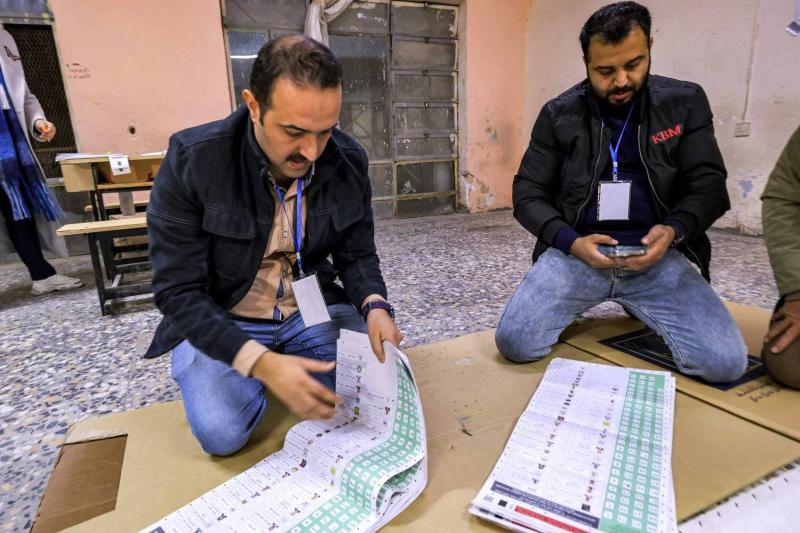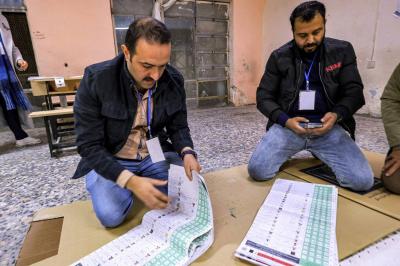The results of the local elections in Diyala, announced two days ago, revealed the advancement of what are called the "hawks" in their lists to the seat of power, among them five are siblings of current deputies. The Sunni forces hope to maintain a unified position that leads to the return of the governorship to them, given the results they achieved which make the path easier.
Mohammed Jabar, an independent politician, stated, "The political environment in Diyala is very complicated and has its own specificity because it is directly related to the Baghdad file. This is a choice that the main political forces dominating since 2003 have adopted. Thus, the decision to determine the identity of the governor is made in the capital, not in Baqubah, as it holds the cards in the political game." He added, "The elections on December 18 yielded what we call the 'hawks' in their lists and placed them at the forefront of the scene, among them are five brothers of current deputies, which makes the local pressure on them difficult since they inherently enjoy the support of their siblings." He pointed out that consultations to form the next Diyala government will be the hardest in all cycles.
He mentioned that the "Diyalatna" list, supported by Hadi al-Amiri, head of the Badr Organization, only achieved four seats out of a total of 15 seats representing the entire Diyala Council, which means it is forced to establish other alliances, a matter that is not easy given the names of the winners, some of whom are competing for the position of governor.
Political analyst Hassan al-Qaisi pointed out that "the winning Sunni lists did not hide before the elections their pursuit of the governorship due to the democratic situation after losing the position eight years ago through changes at that time in the dissolved provincial council." He clarified that "the Sunni forces will begin within a week or more unannounced consultations, especially since they won eight seats in the Diyala Council through three lists (Sovereignty, Progress, Resolve) and have the opportunity to create other alliances based on entitlement, fundamentals, the National Union, and even Diyalatna National, which means the road ahead is not difficult."
He indicated that "the return to forming the Diyala government with the same previous criteria is very difficult in light of what the results have shown, but the matter is not impossible if the Sunni forces do not unify their options, especially since determining the identity of the governor may collide with disagreements among its poles."
Ali Hadi, an electoral observer, acknowledged that "all victorious forces are losers given the numbers they recorded because they are much lower than expected, especially since the general turnout rate in Diyala approached 60%." He added, "The forces spent huge amounts of money, but public apathy created a difficult equation for them, which will become evident through the difficulty of forming the next government in light of the need for alliances from at least three political blocs to move forward."
He pointed out that "the blocs of Hadi al-Amiri - referring to Diyalatna - stemming from his alliance with the State of Law will face a challenging marathon in the upcoming consultations because those who won are the hawks of the lists and have a high ceiling of demands, which makes bringing Baghdad into the line of decision unavoidable to form the next Diyala government."
The Independent High Electoral Commission announced on Tuesday evening the preliminary results of the provincial council elections, with a total participation rate in the general and private voting across the country of 41%, with the participation of more than 6.6 million voters from over 16 million voters who received electoral cards. The elections saw the participation of 134 alliances and individual candidates, while the total number of candidates reached 5,898.




